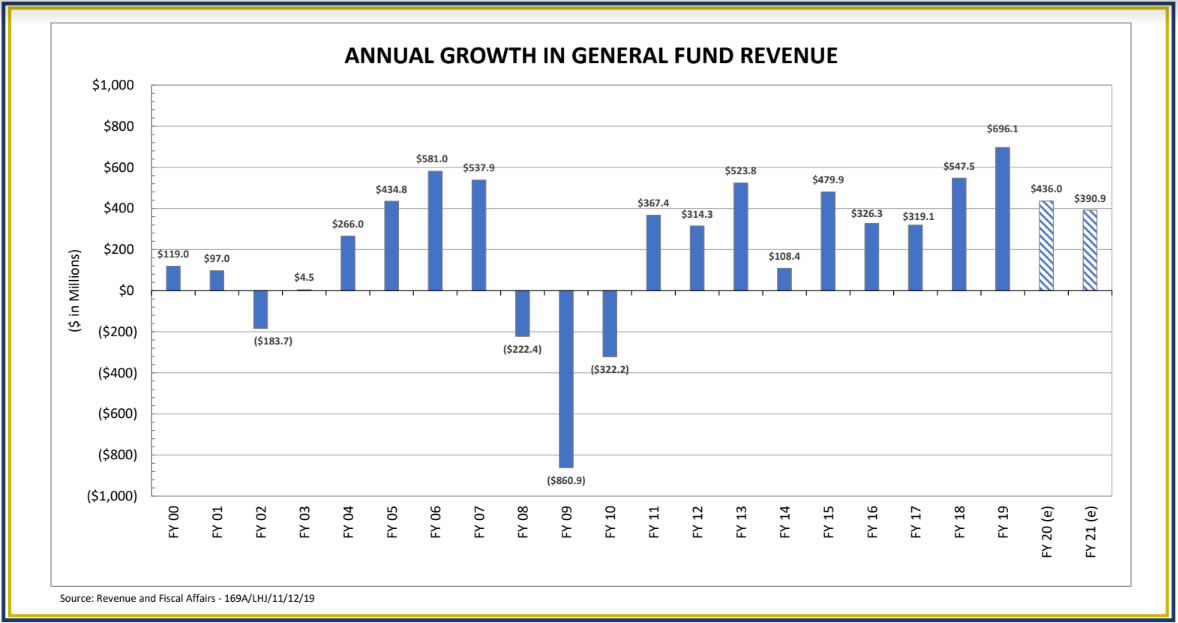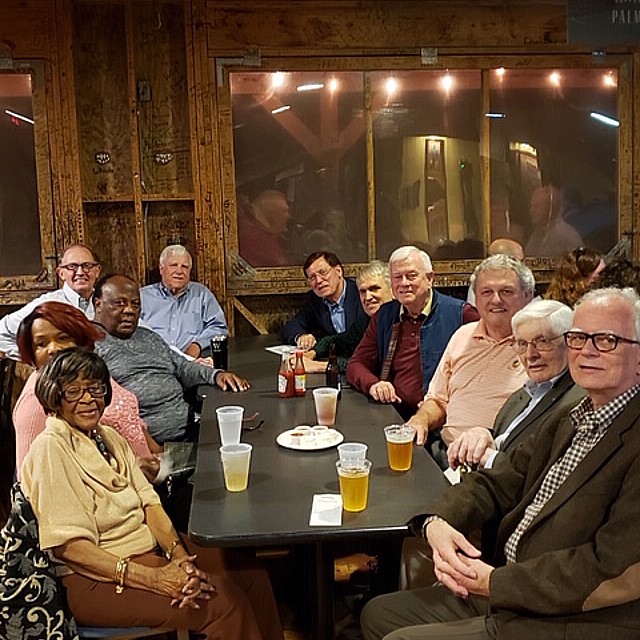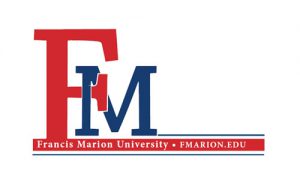INSIDE ISSUE 19.06 | Feb. 7, 2020
 BIG STORY: Lawmakers continue the fight against forced prostitution
BIG STORY: Lawmakers continue the fight against forced prostitution
NEWS BRIEFS: S.C. sees big annual growth in revenues, juvenile justice, more
COMMENTARY, Brack: Don’t count out Uncle Joe, South Carolina
SPOTLIGHT: Francis Marion University
FEEDBACK: Send us your thoughts
MYSTERY PHOTO: The sea life
Lawmakers continue the fight against forced prostitution

By Lindsay Street, Statehouse correspondent | Bills written to address the shadowy, modern-day problem of forced prostitution pass with strong support in South Carolina. But that’s only when they actually reach the floor of the House and Senate.
Known as human trafficking, forced prostitution is a centuries-old problem that remains persistent today as abusive partners pimp their victims, families sell sex services of children, and, in more rare cases, children and adults are abducted for illicit sex rings. Human trafficking can also include forced, unpaid labor.
Recent headlines in the state showed reports of human trafficking cases have surged more than 360 percent as the public has become more aware of the nefarious trade.
But in the state legislative effort to save people from forced prostitution, some lawmakers see a lack of fire in the bellies of Statehouse leaders, despite a recent bill that received unanimous support. And at least one state advocate sees lawmaker actions on sex education and introduction of bills aimed at transgender people as counter-productive in the fight.

“There is so much more we could do (to address human trafficking),” Lancaster Democratic Rep. Mandy Powers Norrell told Statehouse Report. Norrell has sponsored several anti-human trafficking bills this session. She said many of her bills have been stuck in committee. “We’re not getting the attention for the bills and for the movement.”
Emails requesting comment for this story to Gov. Henry McMaster, House Speaker Jay Lucas and Senate President Harvey Peeler on what South Carolina needs to address human trafficking went unanswered.
Last week, Norrell and Surfside Beach Republican Rep. Russell Fry tacked on a human trafficking bill that was languishing in committee as an amendment to a Senate-passed bill on the House floor. If the bill is signed into law, it will increase prostitution, soliciting and pimping penalties, but absolving minors of the legal consequences of prostitution — known as affirmative defense. The amendment and the bill, S. 194, passed without a single no vote.
South Carolina Coalition Against Domestic Violence and Sexual Assault Executive Director Sara Barber said creating an affirmative defense for minors involved in prostitution is a key element in combatting human trafficking.
If the bill becomes law, any minor who would have been charged with prostitution will be referred to the Department of Social Services, lead sponsor Lexington Republican Sen. Katrina Shealy said.
The House amendment include penalties for the “sex tourism” industry. Because of those changes in the House, S. 194 is pending conference between the two bodies before it can be ratified and sent to McMaster’s desk.
It is possible the anti-human trafficking bill could be ratified as soon as next week, should the Senate choose to address uncontested bills ahead of S. 419, the massive education package on special order.
The fight against human trafficking
In 2012, South Carolina passed its first human trafficking laws. Two years later, the state developed its first plan, which focused on training prosecutors and law enforcement in investigations and prosecutions. In 2015, South Carolina allowed state prosecution of those accused of trafficking persons, meaning that a victim did not need to be “retraumatized” in multi-county cases, South Carolina Human Trafficking Task Force coordinator Kathryn Moorehead said in a 2017 interview with Statehouse Report.
More laws have been passed since then, including a 2018 law that defines child trafficking as child abuse.
“It’s a huge puzzle with a lot of different pieces,” Moorehead said this week. She said her task force, which resides in the state attorney general’s office, is working to finalize a “strategic response protocol” to build a network of federal and state agencies and nonprofits.
In the last year, the S.C. Attorney General’s office has reached out to industry groups, such as beer distributors, to grow training for recognizing victims. The Attorney General’s office 2019 report identified several needs in South Carolina, including:
- A lack of sufficient funding for, access to, and availability of resources for groups that provide services to victims of human trafficking;
- Inadequate shelter space to meet the needs of human trafficking victims; and,
- Lack of resources available to law enforcement, prosecutors, and judges that frustrate opportunities to arrest, prosecute, and sentence human traffickers. Additionally, the report found, there is inadequate enforcement of existing rules and regulations in South Carolina.
The road ahead
Shealy said the state needs to keep upping penalties on those who pimp and those who solicit sexual services.

“We have to put teeth behind what we’re saying,” she said. “I don’t think our penalties are strong enough, and we have to give law enforcement the tools to catch them.”
Moorehead said more money will be needed for the task force’s mission.
The Attorney General’s office currently budgets two staff positions for its human trafficking task force, but it is requesting five additional prosecutors — $500,000 — in its 2020-2021 budget. According to Communication Director Robert Kittle, those prosecutors will help handle human trafficking cases.
One program that trains organizations in providing care to trafficking victims is a high priority for Barber.
“The needs of traffic(king) victims are very, very complex,” she said.
Kittle said that as 2021-2022 rolls around, the office will increase its spending requests to aid anti-human trafficking training programs.
Legalizing sexwork, consent-based sex ed, LGBTQ support
But while advocates in the state seek many avenues to address human trafficking, one thing not being considered: legalized sexwork.
Decriminalization bills have been considered in Maine, Massachusetts, Rhode Island, and the city of Washington D.C.
“That’s a horrible idea,” Shealy said. “This is a good Southern state and we’re not talking about legalizing selling sex in South Carolina.”
Moorehead said that while she is aware of other states exploring legalizing sexwork, there needs to be “more research.”
“We need to have success as much as possible, and be really strategic about it,” she said, adding that there appears to be some interest in creating a registry for those working in strip clubs among other states and that’s something “we could potentially discuss.”
“That would be a very heavy lift in our state and I don’t think we’re there yet,” Barber said. “There’s a very clear argument that some people engage in sex work voluntarily and there is the other argument that a majority of people engaged in sex work have been trafficked.”
Consent-focused sex education and support for the LGBTQ community could also play a big role in protecting vulnerable young people, according to Barber.
“When you talk about trafficking, youre talking about already vulnerable youth who are at risk,” she said.She added that there is a link between trafficking and ideas around sexual consent and respect in relationships.
Citing the “bathroom bill” from a few years ago that sought to mandate public restroom goers use the bathroom of their birth sex, and a current House bill called the Youth Gender Reassignment Prevention Act, Barber said those bills send a clear message to LGBTQ youth: We don’t support you.
“All those kinds of policies serve to alienate LGBTQ youth. They further the bias against them in school and in their communities. We should support people who ever they are and however they identify,” Barber said. “If you have policies that are further alienating or leading to lack of support … which means they are far more likely to be homeless and far more likely to be victims of trafficking, you have a big old circle going on.”
- Have a comment? Send to: feedback@statehousereport.com
S.C. sees big growth in revenues, juvenile justice, more

By Lindsay Street, Statehouse correspondent | The state’s revenue forecasters reported data this week that showed South Carolina has seen an average annual revenue increase of $409.2 million in the eight years since the Great Recession.
The S.C. Revenue and Fiscal Affairs Office’s Executive Director Frank Rainwater made the agency’s annual presentation Tuesday to the Senate Finance Committee. One of the slides, showed eight years of revenue increases, ranging from the lowest of $108.4 million in 2014 to the giant $696.1 million in 2019.
The presentation also highlighted potential changes in state and federal revenue for local governments due to the 2020 Census, which Statehouse Report reported on in 2019. Read more.
In other news (staff reports):
 Having some laughs: Several former Charleston-area legislators held a reunion this week at Bowen’s Island, the seafood joint run by former state Rep. Robert Barber near Folly Beach. They enjoyed laughs, old war stories and, according to former state Rep. Jimmy Bailey, “no arguments!”
Having some laughs: Several former Charleston-area legislators held a reunion this week at Bowen’s Island, the seafood joint run by former state Rep. Robert Barber near Folly Beach. They enjoyed laughs, old war stories and, according to former state Rep. Jimmy Bailey, “no arguments!”
Pictured from left are: former state Reps. Lucille Whipper, a daughter, Sen. Robert Ford, Barber, Bailey, Sen. and Lt. Gov. Glenn McConnell, Rep. Bob Kohn, Sen. Ernie Passailaigue, Sen. Larry Richter, Rep. Ted Mappus and Rep. Steve Gonzalez.
Senate panel looks at juvenile justice changes Feb. 12. A Senate Judiciary subcommittee is continuing its work on a large reform package on how the state deals with child offenders in an effort to keep them out of the system and in their schools and communities. Read about the bill here. The next meeting on S. 1018 is 9 a.m. Feb. 12 in room 105 of the Gressette building at the Statehouse in Columbia. See agenda here.
- This week, the U.S. Justice Department found faults with the state’s Juvenile Justice Department. Read more about the issues, and how the department plans to respond here.
House passes state Farm Aid Fund. It’s now up to the Senate on whether to approve a bill (H. 4209) that seeks to establish a state Farm Aid Fund. Farmers in the state have been beset by natural disasters (read more in our 2019 article), and the bill seeks to create a state fund to help give aid to farmers ahead of the slower federal aid. The bill has been referred to the Senate Agriculture and Natural Resources Committee.
Protections for native wildlife clear the House. The Senate has another House-bill on its plate with H. 4831, which addresses possession of native reptiles and amphibians, and prohibit the release of nonnative captive wildlife. Only five House members voted against the bill. It is now in the Senate Fish, Game and Forestry Committee.
Senate still stuck on education. The Senate is mired in amendments and debate on S. 419, a massive bill seeking to alter many facets of public K-12 education in South Carolina. This week, senators added an amendment that allows school districts to establish their starting dates, bucking the old mandate of waiting until at least the third Monday in August.
Kerfuffles. This week saw Democratic lawmakers lashing out at each other inside the Statehouse (long story short: Sen. Dick Harpootlian, a white man from Columbia who has endorsed former Vice President Joe Biden, questioned presidential candidate Tom Steyer’s consultant payments to Rep. Jerry Govan, a black man from Orangeburg; This led to racial tension within the party; read more). This week also saw four Republican lawmakers walking out in protest over the judicial election process (read more).
- Have a comment? Send to: feedback@statehousereport.com
Don’t count out Uncle Joe, South Carolina

By Andy Brack, editor and publisher | With all of the confusion after the Iowa Democratic presidential caucuses and creeping nastiness seeming to shape the party’s New Hampshire primary, look for South Carolina to come to the rescue to former Vice President Joe Biden’s campaign.
 Biden, long at the top of national polls, came up short in Iowa, but that’s not surprising. He got a late start there and had not spent as much time as in other places. Plus, it was a caucus, meaning most people didn’t participate, leaving the results — or whatever you call the Iowa mess — to tilt toward activists.
Biden, long at the top of national polls, came up short in Iowa, but that’s not surprising. He got a late start there and had not spent as much time as in other places. Plus, it was a caucus, meaning most people didn’t participate, leaving the results — or whatever you call the Iowa mess — to tilt toward activists.
New Hampshire, which heavily skews white like Iowa, is less of a bellwether this time around as two major candidates on the left, U.S. Sens. Bernie Sanders of Vermont and Elizabeth Warren, will duke it out to be hometown favorite.
Then there’s Nevada and South Carolina. Nevada looks more like the rest of America but is a caucus state, too, meaning it will provide an incomplete snapshot of Democratic sentiment.
But South Carolina, where more than a third of voters overall are minorities, will be home to the first real contest with a truly representative cross-section of Democrats to evaluate presidential contenders at the polls.
And so far here, Biden has multiple advantages. First, he’s got experience in governance, which is something South Carolinians tend to reward. Look at how many years they elected Strom Thurmond, Fritz Hollings and Joe Riley.
Second, he’s familiar, having made South Carolina a kind of second home through the years. He’s developed deep relationships that have paid off in a huge number of endorsements. In a state like South Carolina, those endorsements — particularly from black leaders and ministers — are vital.
Finally, it doesn’t hurt in the black community, which will have more than a majority of voters in the Democratic primary, that he served as President Barack Obama’s second-in-command. Obama has god-like status among black voters and Biden gets a huge spin-off from that.
These positives don’t mean it won’t be tough for gaffe-prone Biden, but his more moderate, establishment views should prevail over the party’s left, highlighted by Sanders and Warren. The guy in second place in the state, Tom Steyer, has spent millions to push a message that blends traditional politics with climate change.
![]() ALSO IN THE NEWS recently was a plot by some Upstate Republican leaders to interfere with the Democratic presidential primary on Feb. 29 by encouraging GOP voters to show up at the Democratic polls to vote for Sanders. Their logic: Sanders would be an easier candidate for President Donald Trump to beat and that could help dispense with Biden at the same time.
ALSO IN THE NEWS recently was a plot by some Upstate Republican leaders to interfere with the Democratic presidential primary on Feb. 29 by encouraging GOP voters to show up at the Democratic polls to vote for Sanders. Their logic: Sanders would be an easier candidate for President Donald Trump to beat and that could help dispense with Biden at the same time.
Let’s hope these shenanigans don’t happen. Republicans had a chance to have a presidential primary and punted. A former state governor, Mark Sanford, launched a bid against Trump, but couldn’t get the backing of state Republicans to offer voters a choice.
What’s ironic about the whole primary meddling thing is that those calling for it are trying to encourage state lawmakers to have closed party primaries — to make it so that only registered Republicans or registered Democrats can vote in party primaries. The Palmetto State currently doesn’t have voter registration by party.
Not only would this disenfranchise independents, who comprise about a third of state voters. But it’s hypocritical to the core. Perhaps some of the new-arrival Republicans don’t have the historical framework to understand that the reason the Grand Old Party was able to flourish in South Carolina was exactly because it allowed white voters to pick between primaries in the 1960s and 1970s. In days when Thurmond and others switched to the Republican Party, it helped their efforts to have old-time Democrats have the ability to decide which primary to cast their ballot in.
Now, these Upstate yahoos want to change this, which will make things even more partisan in a place that’s too partisan already.
Let South Carolina’s Democrats pick the candidate they believe will best serve the country. Republicans will get their chance at the polls in November.
- Have a comment? Send to: feedback@statehousereport.com.
Francis Marion University
 The public spiritedness of our underwriters allows us to bring Statehouse Report to you at no cost.
The public spiritedness of our underwriters allows us to bring Statehouse Report to you at no cost.
We’re happy this week to shine our spotlight on Francis Marion University, a public university located in Florence, S.C. It was founded in 1970 with a mission to provide the people of the Pee Dee, and of South Carolina, with high quality, yet accessible, university education. FMU has stayed true to that mission for nearly 50 years. In any given year, more than 95 percent of the university’s students are South Carolinians, and FMU is, by most measures, the most affordable college in the state.
Francis Marion University is, of course, named for Revolutionary War hero, General Francis Marion, who was nicknamed “The Swamp Fox” for his uncanny ability to use terrain, local knowledge and just plain old South Carolina common sense to outfox the British. Today, FMU prides itself on providing a strong liberal arts education for its 4,000 students, while at the same preparing them for careers in a broad range of fields.
The University offers professional schools in health care, education and business, as well as graduate programs in business, education and psychology. FMU’s new School of Health Sciences is adding new programs, designed to help deliver critical medical services to the community, on an almost annual basis, so great is the demand by students and the need in our region and state. Recent undergraduate additions to the University as a whole include Health Care Management and Industrial Engineering. The latter, just begin in 2014, is already one of the fastest-growing majors on campus.
The campus is situated on over 400 wooded acres of beautiful foliage and landscaping. A significant campus presence in historic downtown Florence is also developing. FMU’s Performing Arts Center is located there along with the Carter Center for Health Sciences, and the FMU Recording Studio, The University recently acquired more downtown property near the Carter Center, which will help support future academic expansions.
FMU has managed to grow while at the same time providing South Carolinians with, as noted, an affordable university education. FMU’s total net cost — tuition plus room, board and other fees, less scholarships and grants awarded — is South Carolina’s lowest, and by a considerable margin, according to calculations performed by a third party, CollegeFactual.com. FMU has managed this unusual balance of quality and affordability by avoiding capital debt, minding administrative costs carefully, and developing a culture of giving among its many friends and supporters in the Pee Dee and beyond.
- To learn more about Francis Marion, visit online at fmarion.edu.
Tell us what you think — sound off!
We love hearing from our readers and encourage you to share your opinions. But you’ve got to provide us with contact information so we can verify your letters. Letters to the editor are published weekly. We reserve the right to edit for length and clarity. Comments are limited to 250 words or less. Please include your name and contact information.
- Send your letters or comments to: feedback@statehousereport.com
The sea life

It won’t be long before we return to beaches from Hilton Head Island to the Grand Strand. Here’s a pier somewhere along the state’s coast, but where? Send your best guess to feedback@statehousereport.com. And don’t forget to include your name and the town in which you live.
Our previous Mystery Photo
 Our Jan. 17 image, “Maybe a little too cold for this now,” showed a reflection pond in front of the Cooper Library at Clemson University, as attested by more than a dozen alert readers. Congrats to: Elaine Huff-Lowe of Inman; Charlie Davis of Aiken; Blair Lord of Ladson; Jack Shuler, Amy Wiesehahn and Jay Altman, all of Columbia; George Graf of Palmyra, Va.; Bill Segars and Don Clark, both of Hartsville; Gwen Strickland of Marion; Frank Bouknight of Summerville; Justin Mathis, a 12-year-old from Mount Pleasant; Shelly Carter of Spartanburg; Faith Line of Anderson; and Greg Nowell of Walhalla.
Our Jan. 17 image, “Maybe a little too cold for this now,” showed a reflection pond in front of the Cooper Library at Clemson University, as attested by more than a dozen alert readers. Congrats to: Elaine Huff-Lowe of Inman; Charlie Davis of Aiken; Blair Lord of Ladson; Jack Shuler, Amy Wiesehahn and Jay Altman, all of Columbia; George Graf of Palmyra, Va.; Bill Segars and Don Clark, both of Hartsville; Gwen Strickland of Marion; Frank Bouknight of Summerville; Justin Mathis, a 12-year-old from Mount Pleasant; Shelly Carter of Spartanburg; Faith Line of Anderson; and Greg Nowell of Walhalla.
Davis said he remembered how an intoxicated student (say it ain’t so) once drove a bulldozer into the pond more than 40 years back.
Send us a mystery: If you have a photo that you believe will stump readers, send it along (but make sure to tell us what it is because it may stump us too!) Send to: feedback@statehousereport.com and mark it as a photo submission. Thanks.
ABOUT STATEHOUSE REPORT
Statehouse Report, founded in 2001 as a weekly legislative forecast that informs readers about what is going to happen in South Carolina politics and policy, is provided to you at no charge every Friday.
Meet our team
- Editor and publisher: Andy Brack, 843.670.3996
- Statehouse correspondent: Lindsay Street
Buy the book
Now you can get a copy of editor and publisher Andy Brack’s We Can Do Better, South Carolina! ($14.99) as a paperback or as a Kindle book ($7.99). . The book of essays offers incisive commentaries by editor and publisher Andy Brack on the American South, the common good, vexing problems for the Palmetto State and interesting South Carolina leaders.
More
-
- Mailing address: Send inquiries by mail to: 1316 Rutledge Ave., Charleston, SC 29403
- Subscriptions are free: Click to subscribe.
- We hope you’ll keep receiving the great news and information from Statehouse Report, but if you need to unsubscribe, go to the bottom of the weekly email issue and follow the instructions.
- © 2020, Statehouse Report, a publication of City Paper Publishing, LLC. All rights reserved.
- Read our sister publications: Charleston City Paper (every Wednesday) | Charleston Currents (every Monday)


